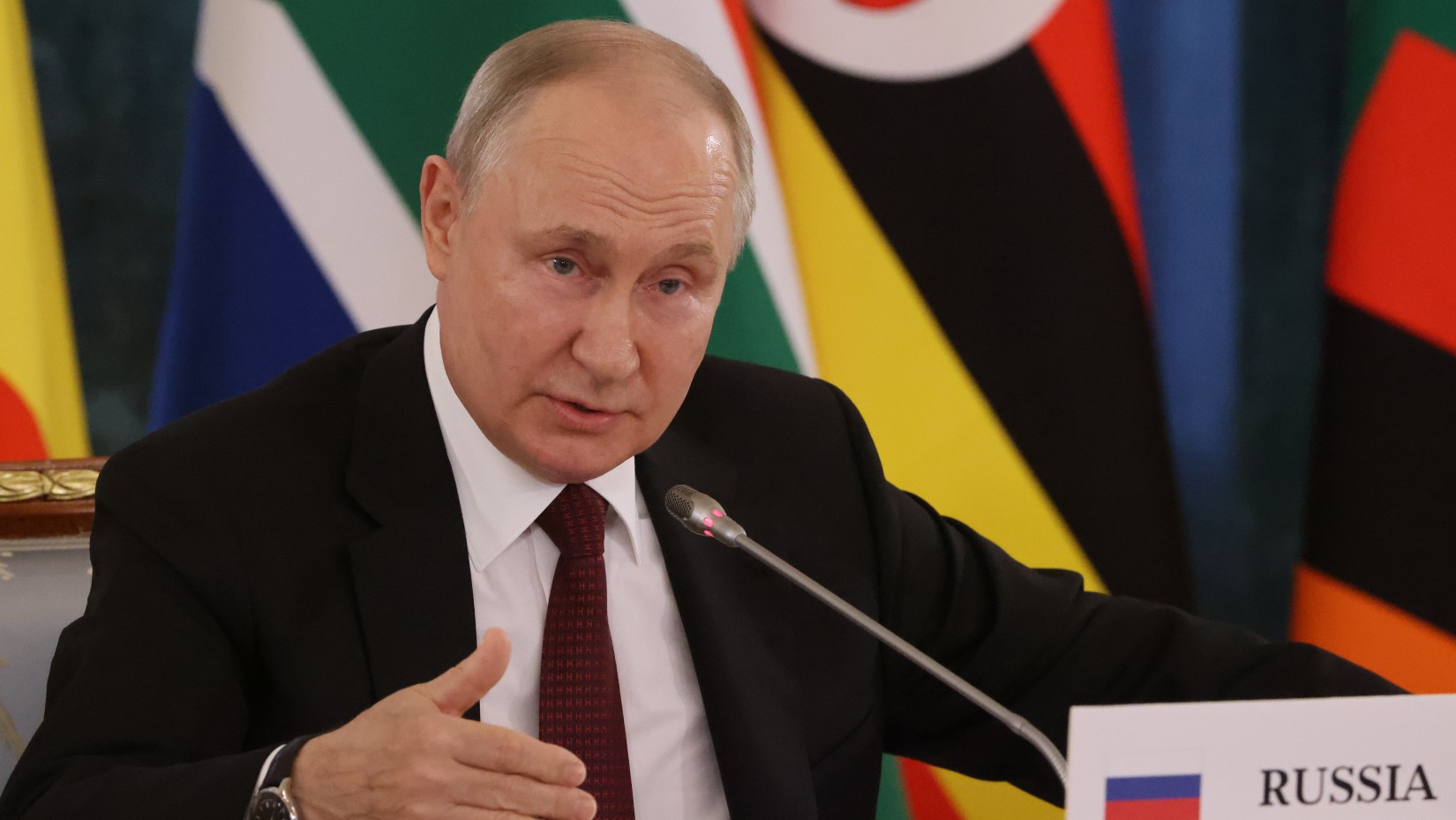Putin skips South Africa summit: will anyone arrest Russian president?
Moscow has threatened war on any country that upholds international arrest warrant over war crimes in Ukraine

A free daily email with the biggest news stories of the day – and the best features from TheWeek.com
You are now subscribed
Your newsletter sign-up was successful
Vladimir Putin will not attend a summit in South Africa next month, ducking the possibility of arrest on an International Criminal Court (ICC) indictment.
South Africa had been grappling with the dangerous conundrum of whether to arrest the Russian president for war crimes if he visited Johannesburg for the BRICS (Brazil, Russia, India, China and South Africa) bloc economic summit in August.
In court papers released yesterday, President Cyril Ramaphosa said that Russia “made it clear” that arresting its president would be “a declaration of war”. South Africa has “obvious problems” with upholding the warrant, he said. Any arrest of Putin would also “introduce a new complication” that could “foreclose” a peaceful solution to the war in Ukraine. The papers revealed that Ramaphosa had sought permission from the ICC to allow Putin to visit without arresting him.
The Week
Escape your echo chamber. Get the facts behind the news, plus analysis from multiple perspectives.

Sign up for The Week's Free Newsletters
From our morning news briefing to a weekly Good News Newsletter, get the best of The Week delivered directly to your inbox.
From our morning news briefing to a weekly Good News Newsletter, get the best of The Week delivered directly to your inbox.
This afternoon a spokesperson for Ramaphosa said that by “mutual agreement” Russia’s Foreign Minister Sergey Lavrov would attend instead.
What did the papers say?
The ICC issued an indictment in March against the Russian leader, accusing him of war crimes over abducting Ukrainian children, which Moscow dismissed. As a member of the ICC, South Africa would have been obliged to arrest Putin if he visited the country, but Russia’s former prime minister Dmitry Medvedev previously threatened to unleash “all our missiles” on any country that arrested Putin.
Democratic Alliance (DA), South Africa’s main political opposition, brought a court case “to force Ramaphosa’s government to execute the ICC warrant if Putin attends”, said the Financial Times (FT). The DA said in a statement the threat of war was “little more than strawman arguments” and the government was attempting to “mask its inability to stand up to warmongers and despots like Vladimir Putin”.
South Africa has so far declined to condemn Russia for its invasion of Ukraine, and has abstained from voting on UN resolutions on the war. The US also accused South Africa of providing Moscow with weapons via a sanctioned Russian cargo ship that visited its main naval base near Cape Town in December. South Africa has denied the accusation, and Ramaphosa has ordered an investigation into the ship’s visit.
A free daily email with the biggest news stories of the day – and the best features from TheWeek.com
South Africa had been “desperately trying” to persuade Putin to stay away, according to The Associated Press (AP), to avoid “the legal and diplomatic fall-out” over the arrest warrant. The country also risked “further straining relations with the West” and its diplomatic partners if it allowed Putin to attend.
According to The Times, analysts said that the recent Wagner Group mutiny would be “reason enough” for Putin to be reluctant to travel to South Africa.
What next?
The ICC has 123 member states, limiting the Russian leader’s travels, although several influential countries such as the US, China, India and Turkey do not recognise the court.
The Rome Statute treaty, which upholds the ICC, “does allow states to consult the court if they encounter problems executing its warrants”, said the FT, which was the avenue that South Africa was pursuing. The newspaper noted that when the country tried this with the-then president of Sudan, Omar al-Bashir, its arguments were “rebuffed by the court”.
Today’s move by Ramaphosa’s government “significantly weakens Moscow’s attempts to reestablish solidarity with key allies”, said CNN. Since invading Ukraine, Russia “finds itself increasingly isolated”.
As Anders Åslund at the Stockholm Free World Forum predicted when the arrest warrant was first issued, Putin “is unlikely to appear in The Hague any time soon”.
But “Russia has effectively lost its voice on the international stage”, he wrote for the Atlantic Council website, and his “domestic political position will be seriously undermined”.
Harriet Marsden is a senior staff writer and podcast panellist for The Week, covering world news and writing the weekly Global Digest newsletter. Before joining the site in 2023, she was a freelance journalist for seven years, working for The Guardian, The Times and The Independent among others, and regularly appearing on radio shows. In 2021, she was awarded the “journalist-at-large” fellowship by the Local Trust charity, and spent a year travelling independently to some of England’s most deprived areas to write about community activism. She has a master’s in international journalism from City University, and has also worked in Bolivia, Colombia and Spain.